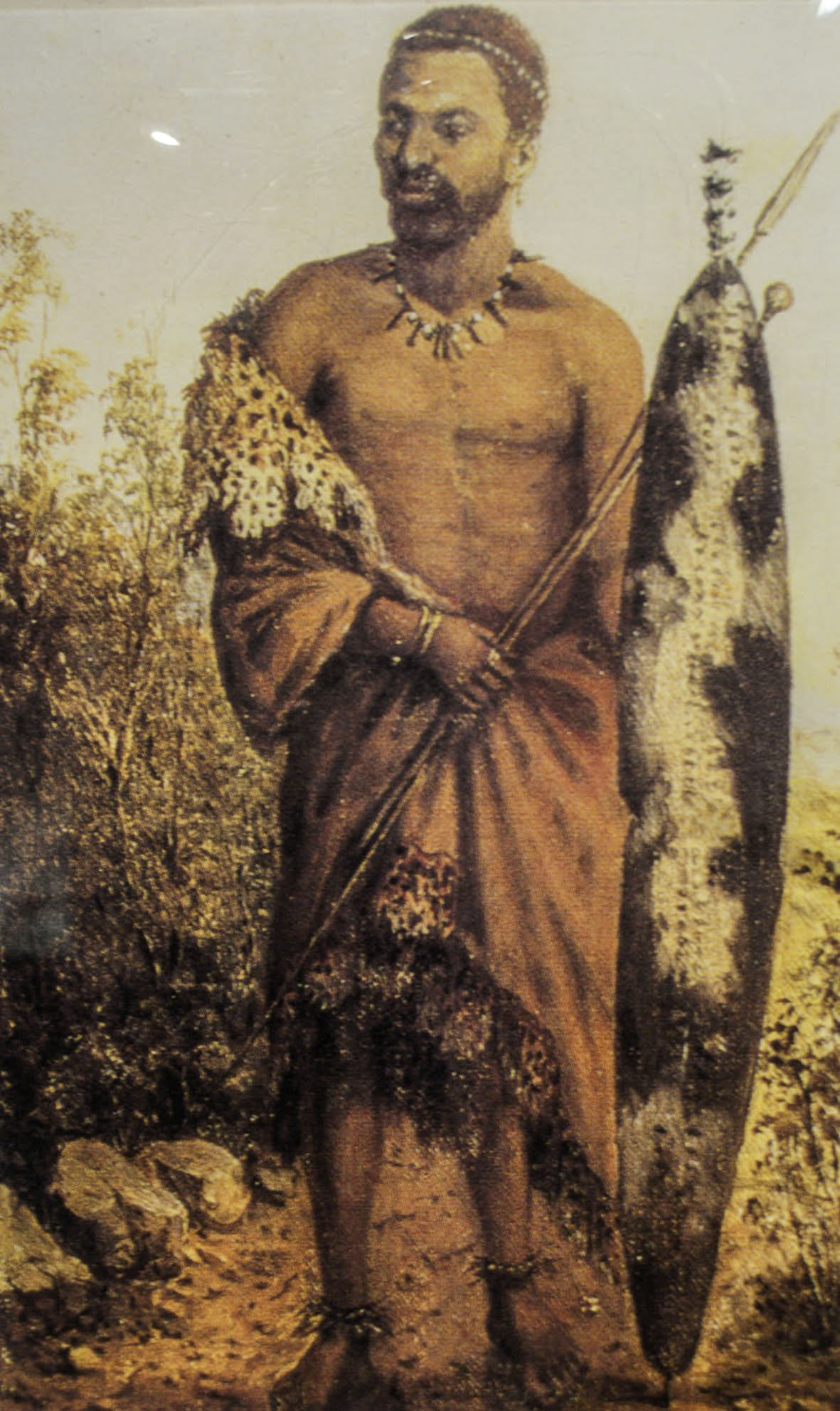Makhanda was born near the coast around 1780 in the Uitenhage area of the South Afrinan Eastern Cape. His father was a Xhosa named Gwala of the amaCwerha clan and his mother was a Khoikhoi of the Gqunukhwebe clan. After Makhanda’s father died when he was a young boy, he was brought up by his mother strongly influenced by her people’s Gqunukhwebe traditions. His mother was a spiritual diviner and medicine woman. Makhanda was later recognised as an ‘’inyanga,’’ which seemed rooted in the early guidance of his mother and her traditions. The Xhosa also particularly held the Khoikhoi and San spiritual guides in high esteem. His mother took him and his siblings to the Great Fish River Valley, where they lived with his foster father Balala.
It is unclear when Makhanda encountered Christianity. Missionary Dr James van der Kemp had established a mission station in Bethelsdorp in 1799, and Makhanda may have met him. Makhanda advocated peace and denounced the use of magic after converting to Christianity.
During his days as an itinerant preacher, he was attacked by a gang of detractors. He was rescued by Qalanga, a councillor of Chief Ndlambe. Qalanga introduced Makhanda to the royal chief of the Rharhab. Around 1812 Chief Ndlambe appointed Makhanda as an advisor and military doctor. As a royal appointee, Makhanda had discussions with the Rev. Vanderlingen, the chaplain at Grahamstown, and with missionary John Read, about theology and cosmology. During this period, Makhanda slowly increased his following and influence among the Rarhabe. Up to 1816, he viewed missionaries as coworkers in the same cause. Missionary Read described Makhanda as “a stout and handsome man, who commands respect.”[3]
In 1816, Makhanda’s attitude towards missionaries changed. Having grown up in areas with Afrikaner farmers, he had firsthand knowledge of their mistreatment of blacks. To Makhanda, Christianity represented European culture. Makhanda and all of the amaXhosa had an understanding that the British, as the Dutch before them, were seeking to take their land from them. From the late 1760s, when the Boer trek farmers started moving into their lands, until the brutal expulsion of the Gqunukwebe and other Xhosa from the Zuurveld in 1812, the Europeans had demonstrated a desire to expand into Xhosa territory.[3] Makhanda viewed the emerging conflict between European and African world views as a contest between Thixo, the god of the whites, and Mdalidiphu (creator of the deep), the god of the blacks. He began to preach a fusion of these religions to reconcile them, leaning toward Xhosa beliefs.
Battle of Grahamstown
In 1818 at the Battle of Amalinde, Makana fought alongside a combined force of the Xhosa against Chief Ngqika, who was considered to be selling out his people in return for personal gain as an ally of the British Empire.
When a British-led force commanded by Colonel Brereton seized 23,000 head of cattle from Ndlambe’s people in retaliation, Makhanda urged all the Xhosa to unite to try to drive British forces out of Xhosaland once and for all. Makhanda advised Ndlambe that the gods would be on their side if they chose to strike back at the British at Grahamstown, and promised that the British “bullets would turn to water”.
Ndlambe took Makana’s advice, and on 22 April 1819 Makana led an raid on Grahamstown in broad daylight with a force of about 6,000 men (some sources say 10,000 men), all under the overall command of Ndlambe’s son Mdushane. They were accompanied by women and children, prepared to occupy the British land. The British garrison of approximately 350 troops was able to repulse the attack only after timely support was received from a Khoikhoi group led by Jan Boesak.
Defeated by superior British firepower and poor tactics by the amaNdlambe leadership, Makana eventually had no choice but to surrender himself. The British imprisoned him on Robben Island, but treated him with great respect, giving him private accommodation, food and furniture. On 25 December 1820, Makana escaped along with 30 other prisoners, mostly Xhosa and Khoisan rebels from the Eastern frontier districts. Although several survived, Makana drowned. Since he had promised his people he would never abandon them, they continued to hope for his return for another 50 years before funeral rites were observed.







